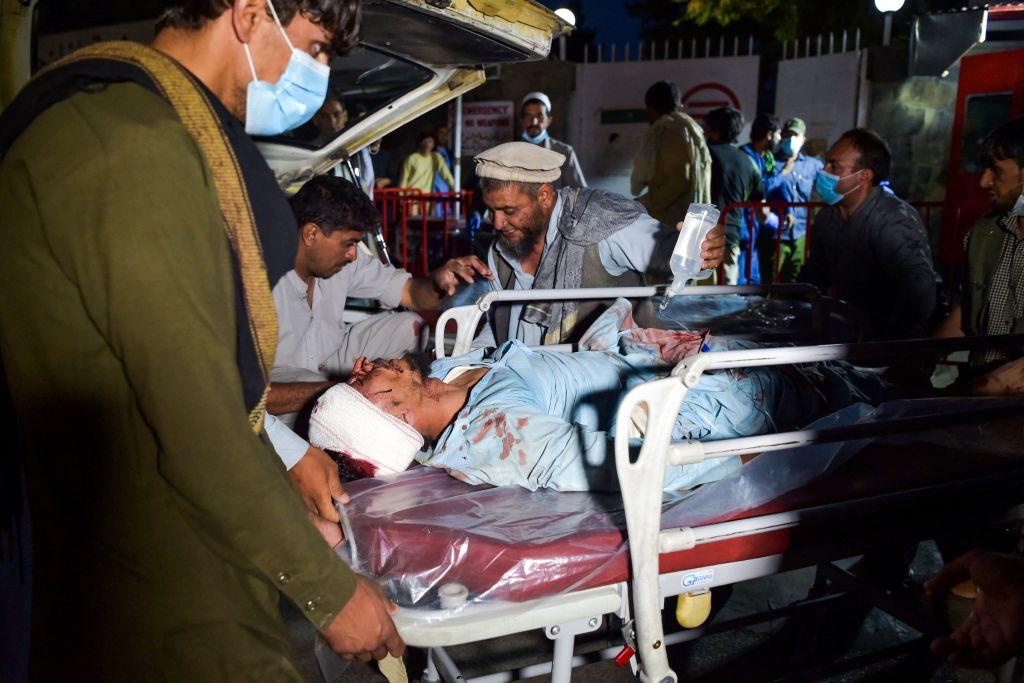
The world is shocked but not surprised. There had been warnings for days that Islamic State Khorasan (IS-K) planned to carry out attacks outside Hamid Karzai International Airport, and the terror group has consistently demonstrated its intention to indiscriminately mount attacks where and when it can.
US President Joe Biden has told the attackers, ‘We will hunt you down and make you pay.’ The Taliban have disavowed responsibility for security at the airport, declaring the US was responsible for that.
So, what is IS-K, why did it stage this attack, what does this mean for the Taliban’s takeover of Afghanistan and the country’s security, and how might the international community respond?
We’re used to hearing of violent extremist groups being ‘affiliated’ with the more powerful terrorist organisations, Islamic State and al-Qaeda. But the support travels both ways: local groups seek this powerful patronage to further their causes, while IS and al-Qaeda need their affiliates to bolster their own status and attract supporters and money, and to prosecute their overall strategies.
IS-K is no simple affiliate of the broader IS terror group. It was established as part of the IS franchise in 2015 at the height of IS’s success in the Middle East. The group’s fortunes have been battered by the targeted counterterrorism operations of the US and Afghan security forces—estimated to have taken out up to 75% of its strength—as well as by fighting against the Taliban as the two groups contended for dominance in Afghanistan’s provinces.
IS-K today is estimated to have around 1,500 to 2,000 members. Its activities are concentrated mainly around Kabul and provinces to the east, on the border of Pakistan’s historical tribal area where it has its origins.
The group is unlikely to seriously challenge the Taliban or others for control over Afghanistan, but it plays an important role as a spoiler and in keeping the IS brand alive at a time when IS isn’t doing well in its Middle East heartland.
IS-K has been responsible for dozens of attacks in the past 18 months, targeting both the former Afghan government and the Taliban as they sought to negotiate a power-sharing arrangement through the US-led Doha process.
How the Taliban respond to this attack is the first test of their newly proclaimed government. They are off to a shaky start. Their leaders had guaranteed safety for those countries mounting evacuations but appear to have been unable to control security at the airport gates. IS-K was able to carry out one attack; whether it can succeed again will indicate how much real control the Taliban have.
Remember, over the past months the Taliban took control of nearly all provinces and cities of Afghanistan uncontested.
Despite the larger split between the al-Qaeda-affiliated Taliban and the IS-affiliated IS-K, the contest at a local level looks very different. The Taliban has re-emerged from a decidedly nationalist Afghan mould, in contrast to its internationalist terrorist rival. IS’s imagining of a ‘Khorasan province’ covers areas beyond Afghanistan that include Pakistan and Iran.
The Taliban also have powerful friends. In something akin to the ‘Great Game’ strategic contest of the 19th century, Russia continues to play an important role. It invaded Afghanistan in 1979 and occupied the country for a decade.
Although Russia is a member of the UN Security Council which endorsed international security activity in Afghanistan from 2001 onwards, it hasn’t contributed to UN-coordinated international efforts. Indeed, Moscow reportedly offered a bounty for killing US military in Afghanistan.
And while other foreign embassies were evacuated with the Taliban’s conquest of Kabul, Russia declared that its embassy was continuing operations as normal. It praised the Taliban and indicated it could work with a Taliban government. Its stance has, however, become more cautious in recent days.
Meanwhile, the US will respond. Biden has vowed to do so. This will likely be a targeted response against IS-K and its affiliates. Military, financial and legal levers will be used.
But there’s unlikely to be a broader response involving Afghanistan. The international community is tired. With 20 years of UN mandates, and a NATO-led mission to help Afghanistan govern itself, it’s difficult to see much interest in increasing assistance.
IS-K is a listed terrorist organisation. The Taliban, however, are not currently proscribed as a such by the US or Australia, though they are still listed as terrorists by some other countries, including Russia.
As unpleasant as the Taliban and their form of government are, they hold sufficient authority to have been at the peace negotiating table since February 2020, and they are now seeking international recognition as the legitimate government. They’ve learned a lot in 20 years out of power. The smooth diplomatic speech of spokesman Suhail Shaheen provides the public face of the group’s efforts to market itself, at least to the international community.
But the Taliban have learned the hard way not to go too far. Providing a haven to Osama bin Laden when he mounted the 9/11 attacks led to Afghanistan’s invasion and the Taliban losing power. They would not wish to risk that again.
The conflict in Afghanistan continues. IS-K and other armed and terrorist groups will continue to operate in Afghanistan. Meanwhile, Amrullah Saleh, the former vice president who has now declared himself president, talks of a resistance to the Taliban being mounted from Panjshir in northeastern Afghanistan. And Afghans across the provinces will continue to attempt to cover their bases and ‘hedge’ to ensure they can work with all the different groups vying for power over Afghanistan’s narcotics trade, its border crossings, and its security.